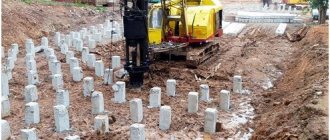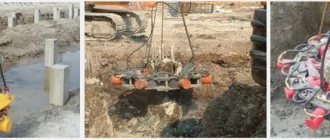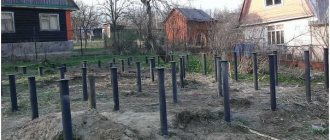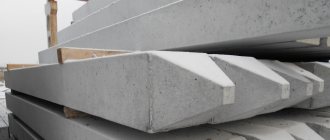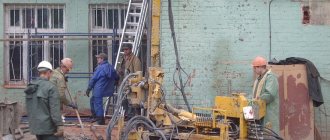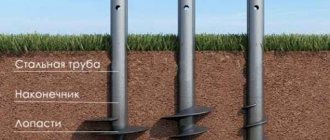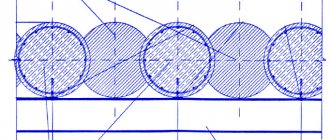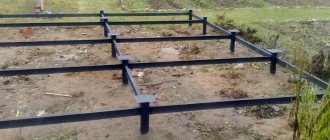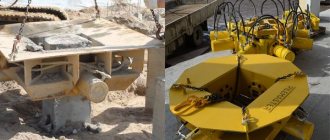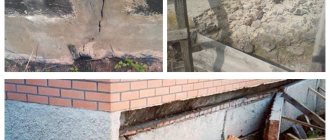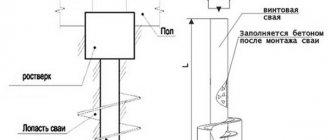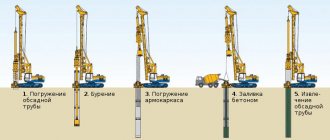Screw piles are one of the most popular building materials on the world market. This should not be surprising, because it is thanks to these structures that the construction of the foundation becomes more economical and simpler. The versatility of this design is amazing:
- a variety of structures can be installed on a pile-screw foundation: log houses, houses made of brick, gas silicate or SIP panels, fences, garages, bridges, power line supports;
- unlike traditional analogues, screw piles can be mounted on different soils: clay, sand, peat, swamp, with a high level of groundwater;
- The type of landscape can also be different: from slopes to wooded areas.
Material for making piles
The pile foundation is excellent for low-rise private construction and has a number of undeniable advantages:
- simplicity and speed of installation of piles;
- low cost of work;
- high reliability on weakened soils.
As already mentioned, piles can be either purchased at construction stores or made yourself. To make piles with your own hands, various pipes are used:
- metal,
- plastic,
- asbestos-cement.
Each of them has its own technical features, and, as a result, its own area of application.
Metal poles for making piles
Piles made from asbestos-cement pipes are best suited for soil with high humidity - swampy or periodically flooded low-lying areas. Products made from asbestos-cement pipes have excellent resistance to dampness and are not subject to corrosion. They are also strong enough as foundations for light buildings - one-story wooden or infill houses, bathhouses, fences, etc. This technology is quite simple and low-cost due to the low cost of materials. Asbestos-cement pipes are used, as a rule, for the manufacture of bored bases for foundations.
Building foundations and polymer pipes are also excellent for drilled technologies. Due to the fact that plastic itself does not tolerate mechanical loads quite well, they act as formwork for pouring concrete piles in bored technologies.

Homemade screw pile from a pipe
The most popular option is to make foundation supports from steel pipes. Steel pipes have excellent strength and resistance to external mechanical influences: for example, seasonal soil deformations (“heaving” of wet soil), vertical loads of buildings.
Another factor that makes steel pipes popular is their availability, relatively low cost and manufacturability. Steel pipes intended for pipelines will be used to make the piles.
Due to their technical qualities, they are suitable for any technology for constructing a pile foundation - bored, driven and piled.
Steel products are highly susceptible to corrosion. Therefore, the use of ordinary steel pipes for wet soils is not recommended. Manufacturing piles from thick-walled or alloyed, galvanized pipes makes the process of constructing a foundation much more expensive.
Compliance with safety regulations
Safety rules during piling work must be strictly followed by all participants in the production process.
It is necessary to constantly monitor the operation of the drilling rig. If any malfunction occurs, work must be stopped.
All participants performing work on the installation of rammed supports must be familiar with the safety rules, which they sign in the log. During the winter season, the construction site must be cleared of snow and ice and sprinkled with sand.
Metal pipe foundation
Metal pipes can be used to make bored, driven and screw bases.
Driven foundation
For the manufacture of driven piles from steel, ordinary products for pipelines are suitable - they are quite reliable and durable. The deepening of piles is carried out by driving with a mechanical pile driver, press or sledgehammer. The technology for producing piles in this case is quite simple. First of all, the future structure needs to be equipped with a pointed conical tip on one side, and a cap on the other side.

Cone piles from pipes
To make the tip, one end of the workpiece is cut using a welding machine or grinder so that several triangular teeth are formed. After this, the petals of the teeth are bent towards the center so that their tops and edges coincide with each other. Next, the petals are welded together, ultimately forming a cone-shaped tip. It is also possible to install a tip from cross-welded triangular blanks.
On the opposite side it will be necessary to make a so-called head. By its design, the head is a metal square shelf that serves as a support for the future structure. It is made of structural steel and welded to the top of the pile.
In most cases, it is impossible to drive piles at the same level. Often they are aligned to the same level after installation. Therefore, it is recommended to install the caps after leveling all the piles.
Screw foundation
The same technology is used for the production of screw piles as for driven piles. The only difference is that a spiral blade is welded onto the buried part. It is made from sheet steel. To do this, a round blank is cut out 10-20 cm wider than the diameter of the future pile. A hole is cut in the center of the workpiece to the size of the pipe. A cut is also made from the inner edge to the outer so that the blades can be given a spiral shape. After this, the workpiece is welded in the form of a spiral to the bottom of the pile, just above the conical tip. Watch the video on how to make screw piles yourself.
TOP manufacturing plants
Below are certified Russian enterprises whose products comply with GOST standards, and whose production volumes exceed the results of work of competing companies.
Screw piles

- rod diameter – from 57 to 325 mm;
- pole length – from 1 to 12 m;
- blade diameter – from 160 to 650 mm.
The quality of ZLVS piles complies with GOST 23118-2012. The average daily production volume is from 120 to 300 pcs.
Prices for our own products:
| Barrel diameter, mm | Blade diameter, mm | Rod length, m | Price |
| 57 | 160 | 1,5 | 750 |
| 76 | 230 | 2,0 | 1050 |
| 89 | 250 | 2,5 | 1350 |
| 108 | 300 | 1,5 | 1250 |
| 108 | 300 | 2,5 | 1650 |
| 108 | 300 | 3,0 | 2100 |
| 133 | 350 | 6,0 | 5000 |
OJSC "Moscow Plant of Pile Metal Structures" has been successfully operating since 2010.
The range of manufactured products includes products with a diameter from 57 to 133 mm with a pole length of up to 12 m. The company offers various galvanizing options:
- epoxy vinyl enamel coating;
- cold galvanizing;
- hot galvanizing.
The quality of screw piles complies with GOST 19804-2012. The volume of production depends on the end user, on average 100 – 200 pcs. per day.
Average prices for products:
| Barrel diameter, mm | Blade diameter, mm | Rod length, m | Price |
| 57 | 200 | 1,5 | 800 |
| 76 | 250 | 2,0 | 1050 |
| 89 | 250 | 2,5 | 1250 |
| 108 | 300 | 1,5 | 1300 |
| 108 | 300 | 2,5 | 1650 |
| 108 | 300 | 3,0 | 1950 |
| 133 | 350 | 5,0 | 4150 |
The ROSA-Ural production complex successfully sells screw piles in Yekaterinburg and nearby cities. The range of products includes narrow-bladed and wide-bladed piles with cast and welded tips for various types of soil.
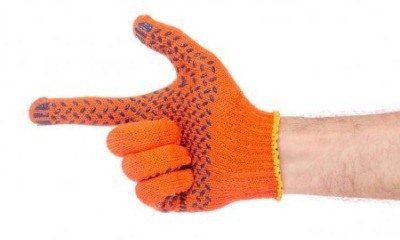
Rod parameters:
- trunk diameter – from 67 to 325 mm;
- blade diameter – from 120 to 850 mm;
- pipe length – from 1.2 to 12 m.
Product quality meets the requirements of the regulatory document TU 5260-001-32993942-218. The plant produces an average of 100 – 150 piles per day (depending on the needs of the end user).
Product prices:
| Pile type | price, rub. |
| wide blade products with welded tip | from 850 |
| broad-bladed with two blades | from 1000 |
| wide blade with cast tip | from 1200 |
| wide-blade with cast tip and two blades | from 1450 |
| with cast narrow blade tip and welded blade | from 1250 |
Reinforced concrete supports
PC "EXPERT" is one of the largest manufacturers of reinforced concrete poles in:
- Moscow,
- St. Petersburg,
- Yekaterinburg,
- Nizhny Novgorod and Kazan.
The company produces reinforced concrete piles for various purposes:
- for the energy complex;
- for the construction of roads and drainage structures;
- for bridge supports;
- for industrial and civil construction and more.
The company produces more than 12,000 types of high-quality reinforced concrete products. The production uses concrete grades no lower than B15-B20.
Average prices for products:
| Parameters of reinforced concrete supports | price, rub. |
| 3000x200x200 | 1500 |
| 4000x300x300 | 4000 |
| 5000x400x400 | 8800 |
| 6000x350x350 | 10000 |
| 10000x400x400 | 17600 |
| 11000x350x350 | 14900 |
| 12000x400x400 | 21120 |
| 15000x400x400 | 26500 |
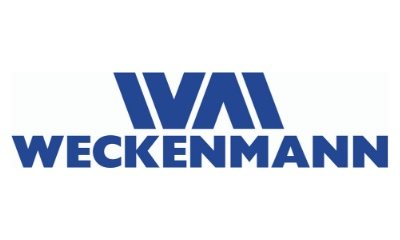
Typical size of manufactured reinforced concrete supports:
- length from 6 to 18 m;
- cross section 300x300 mm.
In the production of reinforced concrete supports, concrete with characteristics not lower than B20, W6, F100 is used. Average daily – 2 km of piles (50–170 pcs.) per day.
| Parameters of reinforced concrete supports | price, rub. |
| 3000x300x300 | 3500 |
| 4000x300x300 | 4150 |
| 5000x300x300 | 7500 |
| 6000x300x300 | 9000 |
| 7000x300x300 | 11800 |
- one of the first factories in St. Petersburg that began producing reinforced concrete piles. Products differ in cross-section (from 150x10 to 400x400 mm) and length from 2.5 to 5 m. Product quality complies with GOST 19804-2012. Average production volume – 50 – 150 pcs. per day.
The cost of products is presented in the table:
| Parameters of reinforced concrete supports | price, rub. |
| 3000x150x150 | 2500 |
| 3000x200x200 | 3000 |
| 4000x200x200 | 4000 |
| 5000x200x200 | 7000 |
Asbestos cement and plastic pipes
These types of pipes are suitable only for drilling technologies. This method of constructing a foundation involves installing wells in the ground, along the perimeter of the future building, using a hole drill. After this, asbestos-cement or plastic pipes are installed in the resulting wells and leveled to the required level. Next, liquid concrete is poured into their cavity, which performs a load-bearing function, imparting rigidity to the entire structure.
The depth of the wells must be below the level of soil freezing - otherwise the pile foundation loses all its technological advantages.

Bored technologies are the most common due to their simplicity and low cost. Bored foundations do not require the production of special structures, as for driven or screw technologies. The installation of piles for such foundations can be easily done with your own hands without the use of complex tools and technologies.
As a result, we can say that when constructing a foundation with your own hands, the choice of one technology or another depends only on you. You just need to correctly calculate your capabilities in terms of construction skills, and also take into account the soil characteristics of the site.
Bored pile with widened heel
The installation of piles with a widened heel is carried out in three ways:
Reinforced compaction
A layer of concrete 200–300 mm thick is poured into the base of the well. The concrete preparation is intensively compacted. Under pressure, the concrete pushes away the surrounding soil, thereby forming a widened heel of the pile base.
Mechanical soil removal
Mechanical removal of soil at the base of the well is carried out using a special knife. A folding knife attached to the drill string opens at the designed depth. As a result of the rotation of the knife, the base of the well is widened up to 3 meters. The knife is controlled remotely by a hydraulic mechanism.
The resulting cavity is filled with concrete. A reinforced frame is installed on the hardened concrete pad.
Explosive method
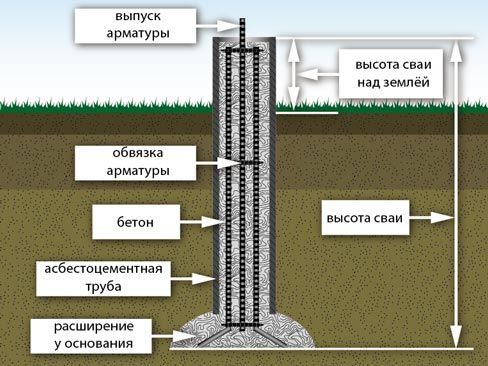
The cavity for the widened heel is obtained by means of a directed explosion. After installing the casing, explosives with an electric ignition are lowered to the bottom of the well. Then the casing is lifted up 500 mm. An explosion is produced using remote control.
The result is a spherical excavation in the ground. The cavity is filled with concrete mixture. The soil, under the influence of the force of the explosion, is highly compacted, which significantly increases the bearing capacity of the supporting structure.
After installing the reinforcement, the casing is filled with concrete with layer-by-layer compaction.
Quality control of finished products
Upon completion of the assembly stage, quality control of the work performed is carried out.
This operation involves performing the following control and verification activities:
- Research of welding seams, which is carried out using a special apparatus (X-ray).
- Testing of supports on stands, where the strength characteristics of the product are determined. Moreover, a certain percentage of finished piles from each batch are allocated for these tests, which are tested for resistance to axial, transverse and other loads.
- Control of product dimensions, during which the length of the pile body and the diameter of the blade and central part of the support are measured. The performance characteristics of the support depend on the accuracy of these indicators.
All products in the batch and a selected part of the product (a certain percentage of the total number of supports) are subjected to these tests. Information about the quality of finished products is entered into the relevant documents issued when the piles are shipped to the consumer.
